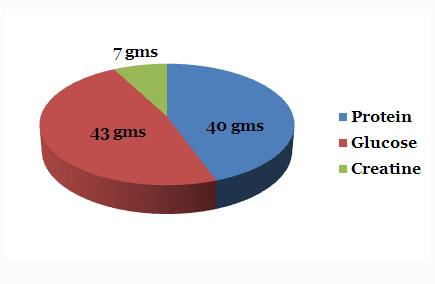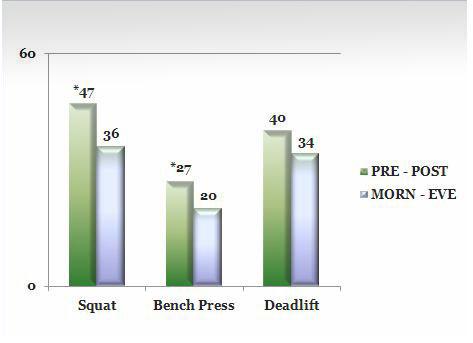Why & When You Should Have a Protein Shake
June 10 2008
It has long been known that weight training changes protein balance positively. Research has also shown that amino acids and/or proteins can acutely do the same, though to a much lesser extent.
What was the purpose of the Protein study?
Combining resistance training and supplementation of amino acids and/ protein shake immediately before or after strength training has shown to have an additive effect on protein synthesis compared to strength training alone. Long- term studies have shown this acute increase in protein synthesis to translate over to gains in strength and muscle mass. Also, addition of carbohydrates to the protein shake mix has shown to have a further cumulative effect on protein balance possibly due to a decrease in protein breakdown.
However, most proteon shake studies have some minor problems:
1) Almost all protein studies required the participants not to consume any nutrients for 2 or 3 hours before or after their workout which is obviously not a normal pattern of eating.
2) Most studies, barring a couple, have looked at the acute effects over protein synthesis and haven’t looked at the long term effects of supplement timing in terms of strength and muscle mass.
3) They never compared the strategy of timing protein shake around your workout with the consumption of the same protein shake at other times during the day.
This study, however, has neatly dealt with all the above problems.
What was the Protein study design?
There were two groups.
Pre-Post Protein Group: The Pre-Psot protein shake group consumed a supplement (1 g.kg body weight) containing protein/creatine/glucose immediately before and after their workout.
Morning-Evening Protein Group: The Morning-Evening protein group consumed the same dose of the same protein shake in the morning and late evening. All participants had at least 6 months of training experience and the workout was high intensity, using mainly compound exercises with free weights.
What were the ingredients in the protein shake?
The protein shake was devised to contain 40 grams whey protein, 43 grams of glucose, trace fat and 7 grams of creatine per 100 grams of supplement, and subjects were told to consume 1 gram/kg bodyweight of the powder ONLY on workout days. The protein shake dose and ratio were consistent with previous research on post workout protein nutrition on the same topic.

Figure 1: The protein shake supplement ratio for a 176 lb (80 kg) subject (~ 1 gm per kg of bodyweight).
What were the results?
As expected, the Pre-Post protein shake group that timed the protein shake immediately before and after their workouts experienced significant increases in muscle mass and strength (bench press and squats) compared to the Morning-Evening protein group. Also, creatine and glycogen content was higher in the Pre-Post protein group.

Figure 2: Strength gains (in pounds) for the PRE-POST protein shake and MORN-EVE protein shake group.* shows a significant difference.
Anyhow, the point I am trying to make is that the next time you drink a protein shake, it might help to bother about WHEN and WHAT you are drinking.
Reference 1
Related
Related Articles
| Tue September 29, 2009
Frustrated
I am a very hard gainer – looking to crack the weight class I’m stuck in.
29yrs old - 6’0” – 185lbs – low body fat (not shredded, but good general definition & vascularity)
I’ve been lifting for about 17yrs & have great strength (~310 max bench), but can’t gain weight (& hence additional strength) to save my life. To the point where I can eat as much & whatever I like & still no gain, even cut my cardio drastically a few years back, but still no gain.
Is additional protein the answer or am I stuck genetically?
I supplement with a 40g protein shake after workouts but getting the 270-300g a day is near impossible super difficult & expensive.
If more protein is the answer what pre-mixed powder do you recommend for adhering the protein/glucose/creatine balance studied?
Any help would be greatly appreciated.
Anoop | Thu October 08, 2009
Hi John,
You have just one option: eat more. First find how much is your maintenance calories and see if you getting more than that with your current diet. Most hard gainers don’t.
And you don’t need to worry about protein intake when you are trying to put on weight. With the amount of food you are supposed to eat you will get plenty protein.
And where is the carbs with the shake? Add some dextrose with it which will get you some calories too.
Try to get 3 shakes and 3 sold meals. Shakes are real easy to make and you can get a lot of calories in a few gulps. I think eating is your problem just like everyone.
1. Find your maintenance calories
2. Find how many calories you consume right now
3. And report back. start a new thread in the forum if you like
It’s time to put some weight.
Good luck!
| Thu October 08, 2009
Thanks very much. I used your formulas & was rather suprised at how many more calories I need to take in.
I’m going to change some things up starting the 1st of next month & see what happens - should be night & day contrast.
Thanks again.
Anoop | Fri October 09, 2009
Hi Jacob,
Good to hear you took time to find out and you figured out the problem.
I am hoping you added the activity factor into the equation too.
| Thu May 27, 2010
Hi Anoop,
As a medical student who is taught Evidence Based Medicine I can greatly appreciate your approach to fitness.
So to clarify, have a pre and post protein shake with milk and creatine seems to be the best option?
I know post shake is immediately after, what about pre workout shake, 30-40 minutes before?
Ali
Sydney, Australia
Anoop | Thu May 27, 2010
Thanks for the comments!
Evidence based approach should be a mind set. It shouldn’t be only applied to medicine or whatever you specialize in.
Milk is a good option. there has been coupe of RCT’s which shows the efficacy of milk post workout. it has both whey and casein.
i don’t think the pre-workout matters unless you are fasted. It is a good idea to sip the drink during your workouts and after.
Commenting is not available in this channel entry.
>



